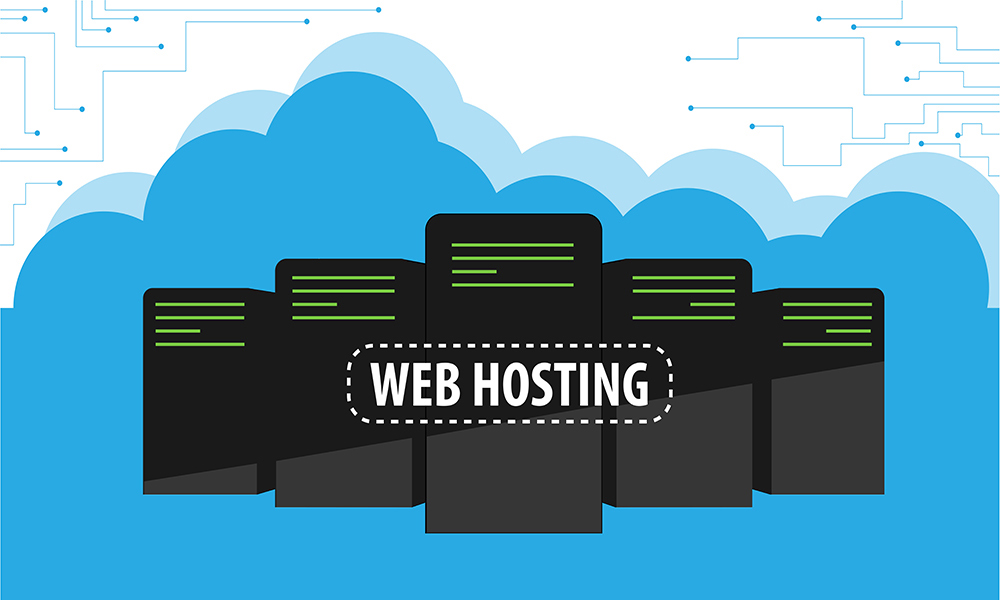In the vast landscape of the internet, web hosting plays a crucial role in making websites accessible to the world. Behind the scenes, a robust and user-friendly control panel serves as the nerve center, empowering users to manage various aspects of their web hosting experience efficiently. Let's explore the ins and outs of the control panel for web hosting and how it empowers both novices and experts in the digital realm.
Understanding the Web Hosting Control Panel
The web hosting control panel is a graphical user interface (GUI) that allows users to manage and control their web hosting services effortlessly. It serves as a centralized platform, offering a range of tools and features for website administration, domain management, email configuration, file management, and more. The control panel acts as a bridge between the complexity of server technologies and the user-friendly interface desired by website owners.

Key Features and Functions
Domain Management: The control panel provides a streamlined process for managing domain names. Users can register new domains, configure DNS settings, set up subdomains, and handle domain transfers—all within a few clicks. This level of domain management simplifies the often intricate process of handling multiple domains associated with a single hosting account.
File Management: Uploading, downloading, and organizing files become a breeze through the file manager feature in the control panel. Users can navigate through directories, edit files directly, and even set permissions for enhanced security. This user-friendly file management system eliminates the need for third-party FTP clients for many routine tasks.
Email Configuration: Managing email accounts associated with the hosted domains is a fundamental aspect of web hosting. The control panel allows users to create, delete, and modify email accounts easily. Additionally, it facilitates the configuration of email forwarding, autoresponders, and spam filters, contributing to a seamless communication experience.
Database Administration: Websites often rely on databases to store and retrieve information dynamically. The control panel simplifies database administration by providing tools to create, modify, and delete databases. Users can also manage database users and set permissions, ensuring the smooth functioning of dynamic websites.
Security Measures: Security is paramount in the digital landscape. The control panel incorporates security features such as SSL certificate installation, IP blocking, and access control. Users can configure firewalls, monitor resource usage, and implement other security measures to safeguard their websites from potential threats.
Website Analytics: Monitoring website performance is vital for making informed decisions. Many control panels integrate analytics tools that offer insights into website traffic, visitor demographics, and more. This data empowers website owners to refine their strategies and enhance the user experience.
One-Click Installs: Content Management Systems (CMS) and other applications can be effortlessly installed using one-click installers available in the control panel. This feature is especially beneficial for those who may not have technical expertise but want to explore and utilize various website-building platforms.
Resource Management: Understanding and managing server resources is essential for optimal website performance. The control panel provides insights into resource usage, including CPU, memory, and disk space. Users can allocate resources based on their requirements and monitor usage patterns over time.

Popular Control Panel Options
cPanel: Widely recognized for its user-friendly interface and extensive features, cPanel is a popular choice for many web hosting providers. It offers a range of tools for website and server management, making it suitable for both beginners and experienced users.
Plesk: Plesk is another widely used control panel known for its versatility. It supports both Windows and Linux servers, offering a clean interface and robust tools for managing websites, domains, and server settings.
DirectAdmin: DirectAdmin is a lightweight yet powerful control panel that emphasizes simplicity and efficiency. It provides essential features for managing websites, email, databases, and more.
ISPConfig: ISPConfig is an open-source control panel that caters to a broad audience. It offers a modular structure, allowing users to select and install only the components they need for their specific hosting requirements.
Webmin: Webmin takes a slightly different approach by providing a web-based interface for system administration. It allows users to manage various aspects of the server, making it suitable for those who prefer a more hands-on approach to server management.
Benefits of a Well-Designed Control Panel
Usability: A well-designed control panel simplifies complex tasks, making them accessible to users with varying levels of technical expertise. Intuitive navigation and clear instructions contribute to a positive user experience.
Time Efficiency: Performing tasks efficiently is crucial for website owners. A user-friendly control panel streamlines processes, reducing the time and effort required to manage different aspects of web hosting.
Enhanced Productivity: Users can focus on growing their online presence rather than grappling with technical complexities. An efficient control panel empowers users to be more productive by providing quick access to essential tools.
Scalability: As websites grow, so do their requirements. A robust control panel allows users to scale their hosting resources, add domains, and adapt to changing needs seamlessly.
Support and Documentation: A well-established control panel is typically supported by extensive documentation and user forums. This wealth of resources ensures that users can find answers to their queries and troubleshoot issues effectively.
Remote Management: The ability to manage hosting settings remotely adds a layer of convenience for users. This is especially valuable for those who need to make quick adjustments while on the go.
Challenges and Considerations
While control panels offer immense benefits, users should be aware of potential challenges:
Resource Usage: Some control panels may consume a notable amount of server resources. Users should consider the resource efficiency of their chosen control panel, especially if hosting multiple websites on a shared server.
Security Concerns: The control panel itself is a potential target for malicious activities. It's crucial to keep the control panel software updated and implement additional security measures to protect against potential threats.
Cost: Some control panels come with licensing fees, which may impact the overall cost of web hosting. Users should weigh the features and benefits against the associated expenses.
Learning Curve: While control panels aim to simplify management tasks, there may still be a learning curve for users unfamiliar with hosting terminology and processes. Quality documentation and support can mitigate this challenge.
The Future of Control Panels
As technology continues to advance, the future of web hosting control panels looks promising. Integration with artificial intelligence, enhanced automation features, and improved user interfaces are expected to define the next generation of control panels. These advancements aim to further streamline web hosting management, making it even more accessible to a broader audience.
Conclusion: Empowering Web Hosting Users
In the ever-evolving digital landscape, a reliable and intuitive control panel is a cornerstone for successful web hosting management. Whether you are a seasoned webmaster or a novice building your first website, the control panel serves as a gateway to the world of hosting, offering tools and features that empower users to shape their online presence. As technology continues to shape the future, the control panel remains a vital component, ensuring that the complexities of web hosting are navigable for all.

